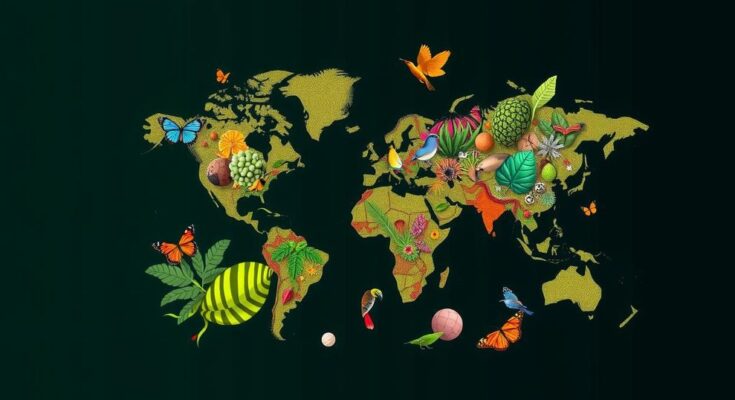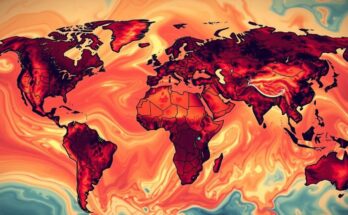The 16th Conference of the Parties (COP16) to the Convention on Biological Diversity will take place in Cali, Colombia, from October 21 to November 1, 2024. IFAW is advocating for coordinated global action to address climate change and biodiversity loss, emphasizing their interdependent nature. Matt Collis emphasizes that COP16 is a pivotal moment to align efforts and commitments. The conference will focus on the protection of marine ecosystems and will also feature IFAW’s side event promoting wildlife conservation in climate plans, aiming to establish robust global strategies for environmental resilience.
The 16th Conference of the Parties (COP16) to the Convention on Biological Diversity (CBD) is scheduled to occur from October 21 to November 1, 2024, in Cali, Colombia. This event is crucial as it gathers global leaders and environmental experts to address the pressing issues of biodiversity loss and climate change. The International Fund for Animal Welfare (IFAW) emphasizes the necessity for international collaboration to combat these intertwined crises effectively. Matt Collis, IFAW’s Senior Director of Policy, underscored the interdependence of solutions by stating, “We cannot solve either the climate crisis or biodiversity loss without addressing the other.”, highlighting COP16 as a crucial juncture for aligning global efforts in environmental protection. As the first in a series of important Rio Convention meetings in 2024, COP16 has the potential to shape significant international environmental discussions moving forward. The upcoming COP30 of the United Nations Framework Convention on Climate Change (UNFCCC) is expected to see countries update their climate action plans, making synchronized initiatives at COP16 even more vital. The IFAW stresses the importance of safeguarding marine and coastal biodiversity, which is essential for both ecological health and combating climate change. These ecosystems are critical in absorbing carbon dioxide and regulating climate patterns, yet they face increasing threats from human activity and climate change repercussions. Collis remarked, “Healthy oceans are the foundation of a healthy planet. They absorb carbon, mitigate climate impacts, and support rich biodiversity.” An official side event hosted by IFAW, entitled “Leveraging wildlife conservation and rewilding to supercharge climate mitigation and adaptation”, will be held on October 24, during which IFAW will introduce new guidelines aimed at integrating wildlife conservation into national climate strategies. This initiative captures the essence of the collaborative efforts required to strengthen both biodiversity and climate efforts.
The upcoming COP16 represents a pivotal gathering for addressing two of the most critical environmental challenges of our time: biodiversity loss and climate change. The interconnectivity of these issues has been increasingly recognized, necessitating a unified strategy for environmental governance. The 2023 COP28 Joint Statement highlighted the need for an integrated approach to environmental challenges, which COP16 has the unique opportunity to advance. Marine ecosystems, in particular, are under threat, making their protection imperative in the context of both climate and biodiversity strategies. By aligning global efforts at this conference, stakeholders aim to foster a cooperative framework for future environmental initiatives, addressing the urgency and complexity of the crises we face.
In summary, COP16 serves as a crucial platform for promoting international cooperation on biodiversity and climate change. The conference’s emphasis on the interconnected nature of these crises indicates a shift towards more integrated policymaking and action. By addressing both climate strategy and biodiversity conservation jointly, participants at COP16 aim to catalyze meaningful progress that will benefit the health of our planet for future generations. The emphasis on marine biodiversity also highlights the importance of protecting vital ecosystems to uphold their essential contributions to the Earth’s climatic balance and biodiversity.
Original Source: www.ifaw.org




